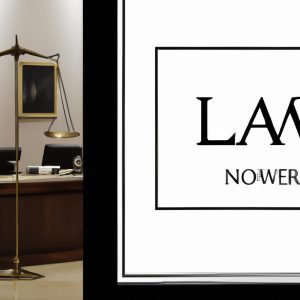As seasoned legal experts at Morgan Legal Group in New York City, we understand the complexity of addressing Medicaid eligibility in relation to the transfer of one’s home. Navigating the intricacies of estate planning, probate, and elder law requires a keen understanding of the laws and regulations surrounding these matters. In this article, we aim to shed light on the nuances of transferring your home while maintaining Medicaid eligibility, providing you with the necessary insights to make informed decisions for your future. Join us as we delve into the intersection of homeownership and Medicaid, unraveling the implications and considerations that come into play.
Understanding the Implications of Transferring Your Home on Medicaid Eligibility
When it comes to Medicaid eligibility, transferring your home can have significant implications that must be carefully considered. While the rules and regulations surrounding Medicaid can be complex, understanding how transferring your home may impact your eligibility is crucial. There are several key factors to keep in mind when considering transferring your home in relation to Medicaid eligibility:
- Lookback Period: Medicaid has a lookback period, typically five years, during which any transfers of assets, including your home, will be closely scrutinized. Transferring your home within this timeframe could result in penalties that affect your eligibility for Medicaid benefits.
- Asset Limits: Medicaid has strict asset limits that must be met in order to qualify for benefits. Transferring your home could impact your overall asset level and potentially disqualify you from receiving Medicaid benefits.
| Consult with an experienced elder law attorney | Consider the impact on inheritances for loved ones |
| Review any existing estate planning documents | Understand the potential Medicaid penalties |

Key Factors to Consider Before Transferring Ownership of Your Home
Consider these essential factors before transferring ownership of your home to ensure Medicaid eligibility:
- Look at the Medicaid Lookback Period: Medicaid has a lookback period where they review any asset transfers made within five years prior to applying for benefits. Transferring your home within this period may result in a penalty that could affect your eligibility for Medicaid.
- Understand Medicaid’s Asset Limits: Medicaid has strict asset limits that you must meet to qualify for benefits. Transferring your home may impact your total asset count and could potentially disqualify you from receiving Medicaid benefits.
- Consult with an Experienced Elder Law Attorney: Seeking advice from a knowledgeable elder law attorney, like those at Morgan Legal Group in New York City, can help you navigate the complexities of transferring ownership of your home while ensuring you maintain Medicaid eligibility.
| Assets Transferred | Impact on Medicaid Eligibility |
|---|---|
| Home Ownership | Possible disqualification if asset limits exceeded |
| Gifts to Family Members | Penalties during Medicaid lookback period |

Navigating the Complex Rules and Regulations Surrounding Home Transfers and Medicaid
When it comes to transferring your home and maintaining Medicaid eligibility, it’s essential to navigate the complex rules and regulations that govern these processes. Making a misstep can have serious consequences, potentially impacting your ability to receive crucial benefits. Understanding the requirements and restrictions is key to ensuring a smooth transfer that complies with all legal guidelines.
One important consideration is the look-back period, which evaluates any transfers or gifts made within a certain timeframe before applying for Medicaid. Additionally, certain transfers can trigger penalties that affect eligibility. By working with experienced professionals like the team at Morgan Legal Group, you can confidently navigate these intricacies and make informed decisions to protect your assets and ensure compliance with Medicaid regulations.

Expert Recommendations for Safeguarding Your Assets While Applying for Medicaid
When it comes to safeguarding your assets while applying for Medicaid, one crucial aspect to consider is the transfer of your home. This process can have a significant impact on your eligibility for Medicaid benefits. To navigate this complex issue, it is essential to seek expert legal advice from professionals like the Morgan Legal Group in New York City.
One effective strategy to protect your home while applying for Medicaid is to transfer ownership to a trust. By transferring your home to an irrevocable trust, you can ensure that it is safeguarded from Medicaid liens and estate recovery. Additionally, this can help you qualify for Medicaid benefits without the risk of losing your most valuable asset. Our team of experienced lawyers can provide personalized guidance on how to execute this strategy effectively and ensure the protection of your home.
Q&A
Q: What is the significance of transferring your home for Medicaid eligibility?
A: Transferring your home can impact your eligibility for Medicaid as it may be considered a countable asset.
Q: Can I transfer my home to my child to qualify for Medicaid?
A: Transferring your home to your child may affect your Medicaid eligibility, as it can be seen as a way to avoid using your assets for long-term care expenses.
Q: Are there any exceptions to transferring your home for Medicaid eligibility?
A: There are some exceptions to transferring your home, such as transferring it to a spouse, a disabled child, or a caregiver who has lived in the home for a certain period of time.
Q: How does transferring my home affect my Medicaid application process?
A: Transferring your home can impact your Medicaid application process by potentially triggering a penalty period where you are ineligible for benefits.
Q: What are some alternatives to transferring my home for Medicaid eligibility?
A: Instead of transferring your home, you can consider setting up a trust, using a life estate deed, or spending down your assets to qualify for Medicaid.
In Summary
In conclusion, navigating the transfer of your home while maintaining Medicaid eligibility can be a complex and daunting process. Consultation with legal and financial experts is essential to ensure that your assets are protected and your eligibility for crucial benefits is preserved. By carefully considering your options and taking the necessary steps, you can find peace of mind knowing that you have made informed decisions for your future. Remember, with the right guidance, you can successfully navigate the intricacies of the transfer process and secure a more stable financial future.






